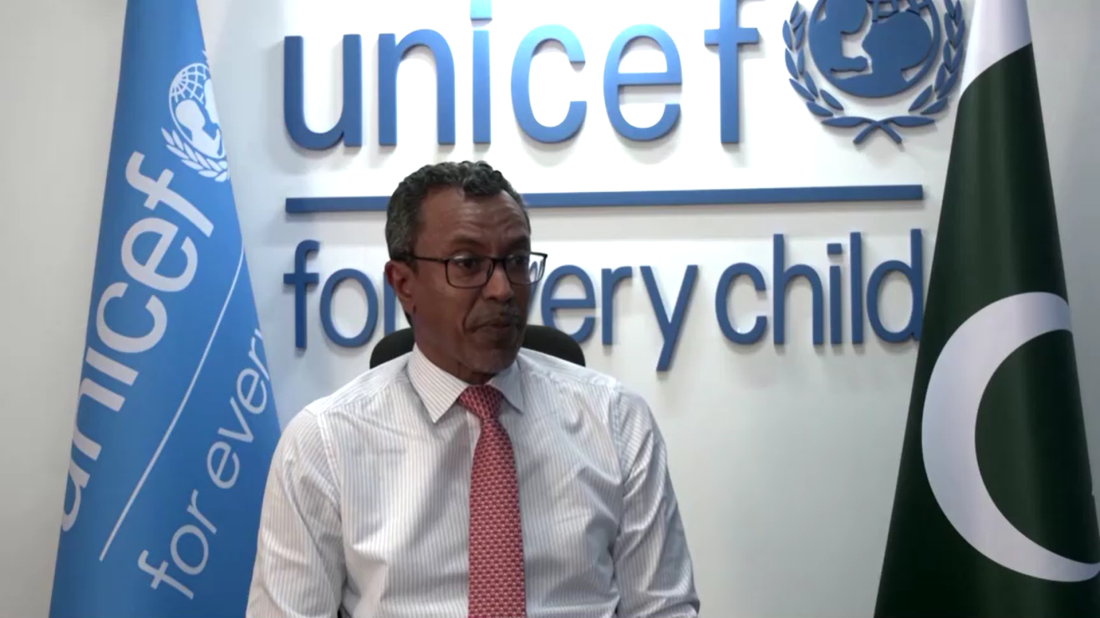Kazakhstan vows to fast-track AZAL crash investigation amid rising diplomatic tensions
Kazakhstan has vowed to speed up its investigation into the Azerbaijan Airlines (AZAL) crash near Aktau, as mounti...

UNICEF has raised concerns over the toxic smog hospitalizing children in Lahore, Pakistan, the world’s most polluted city in terms of air quality, according to Swiss group IQAir’s live ratings. Schools and outdoor areas have been closed in the region.
The United Nations International Children’s Emergency Fund (UNICEF) has called for greater efforts to reduce pollution caused by severe smog in Lahore and other cities in the Punjab province in Pakistan.
Children have been admitted to ‘The Children Hospital’ in Lahore', with doctors saying that many of them are suffering with respiratory ailments caused by the smog.
Consequently, most outdoor activities have been banned in Punjab province. Shops, markets and malls in and around the area have also been instructed to close early to mitigate the impact caused by the intense air pollution.
Educational centers and public spaces like parks and zoos have also been shut down in Lahore, which is the world’s most polluted city in terms of air quality, according to Swiss group IQAir’s live ratings.
Abdullah Fadil, UNICEF representative in Pakistan, said that more than 11 million children under the age of five were in danger, expressing concerns over the closure of schools thereby disrupting learning. He, however, said that majority of schools were not equipped with infrastructure to have online classes.
Every winter, several parts of South Asia are engulfed by a toxic haze as cold air traps dust, emissions and smoke from farm fires.
The Kremlin is utilising the recent United States and Israeli military strikes on Iran to validate its ongoing war in Ukraine. Russian officials are pointing to the escalation in the Middle East as evidence that Western nations do not adhere to international rules.
Saudi Arabia’s state oil giant Saudi Aramco closed its Ras Tanura refinery on Monday following an Iranian drone strike, an industry source told Reuters as Tehran retaliated across the Gulf after a U.S.-Israeli attack on Iranian targets over the weekend.
The Middle East crisis intensifies after the deadly attack on the compound of the Supreme Leader of Iran Ali Khamenei on Saturday that killed him, other family members and senior figures. Iran has launched retaliatory strikes on U.S. targets in the region.
U.S. President Donald Trump said the U.S. military has enough stockpiled weapons to fight wars "forever"; in a social media post late on Monday. The remarks came hours before conflict in Iran and the Middle East entered its fourth day.
Türkiye raised its security level for Turkish-flagged vessels in the Strait of Hormuz to Level 3 on Sunday (2 March). The development follows Iranian restrictions on shipping after U.S. and Israeli strikes and confirmation of Supreme Leader Ali Khamenei’s death.
Measles cases across Europe and Central Asia fell sharply in 2025 compared to the previous year but health officials have warned that the risk of fresh outbreaks remains unless vaccination gaps are urgently addressed.
A Florida university has become a new hotspot in a widening U.S. measles outbreak, with health officials confirming multiple infections and hospitalisations.
The World Health Organization has added the Nipah virus to its list of the world’s top 10 priority diseases, alongside COVID-19 and the Zika virus, warning that its epidemic potential highlights the global risk posed by fast-spreading outbreaks.
Belgian authorities are examining suspected cases of infants falling ill after consuming recalled Nestle baby formula, amid warnings that confirmed infections may be underestimated due to limited testing requirements.
Two Nipah infections involving health workers in India have triggered heightened screening across Southeast Asia as authorities move to prevent the high fatality virus from spreading beyond the country.
You can download the AnewZ application from Play Store and the App Store.

What is your opinion on this topic?
Leave the first comment